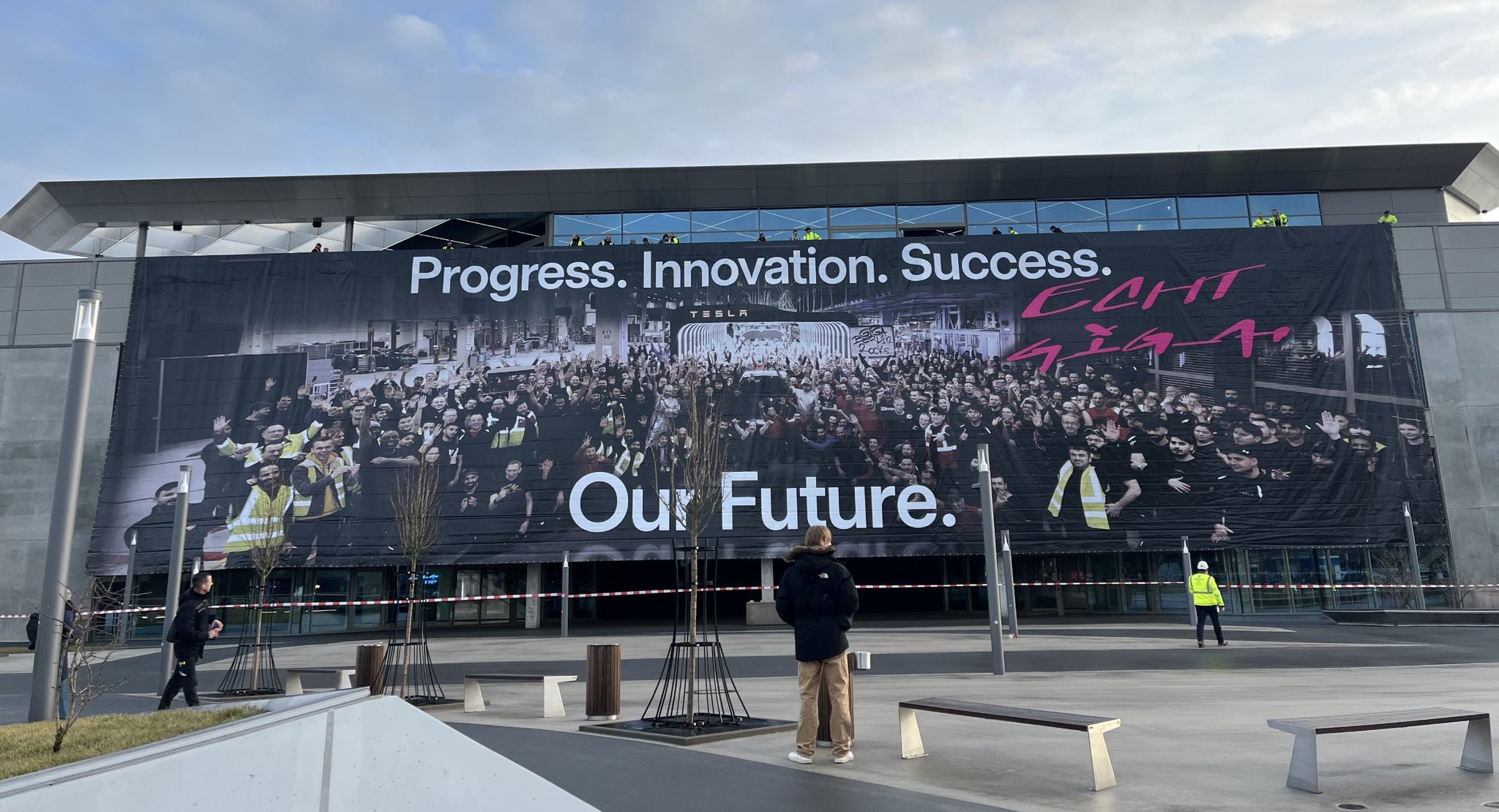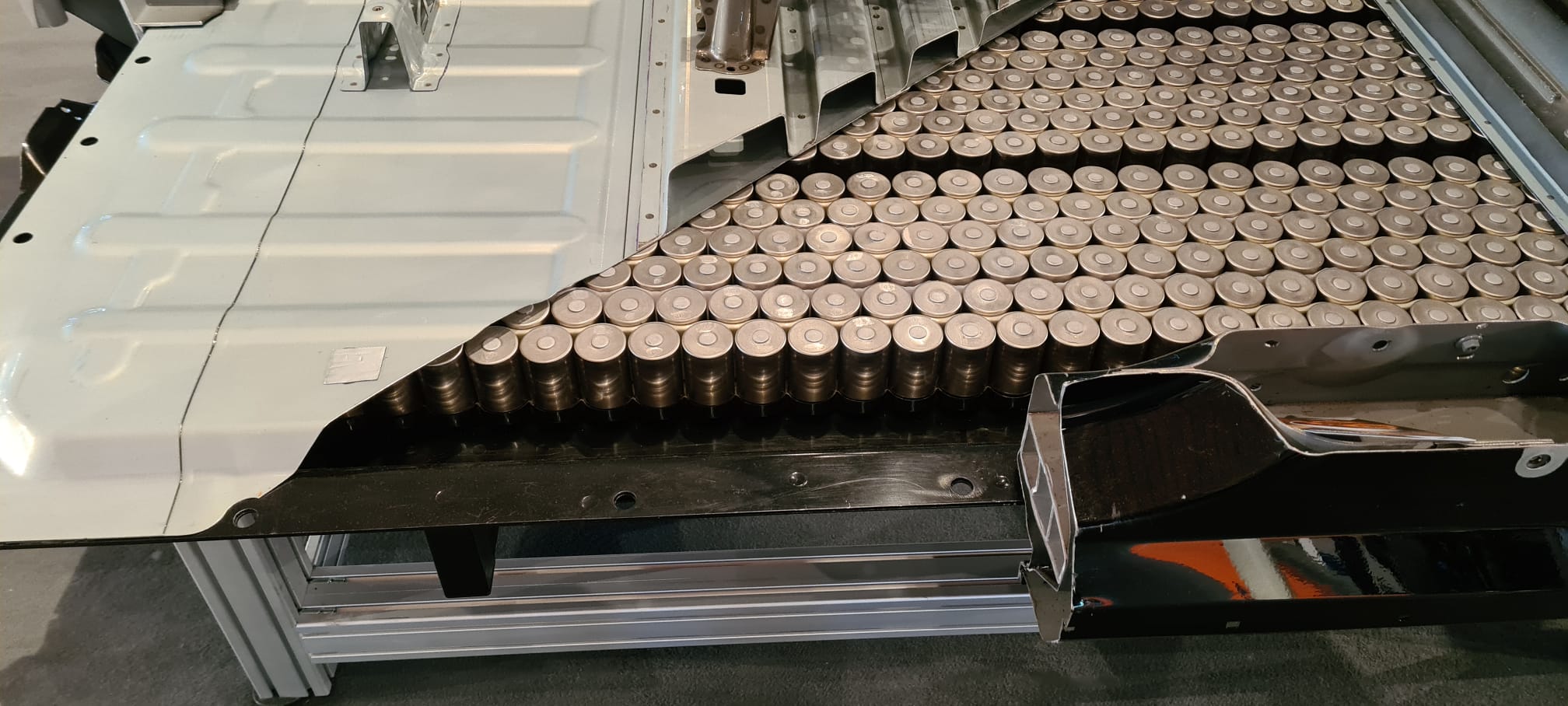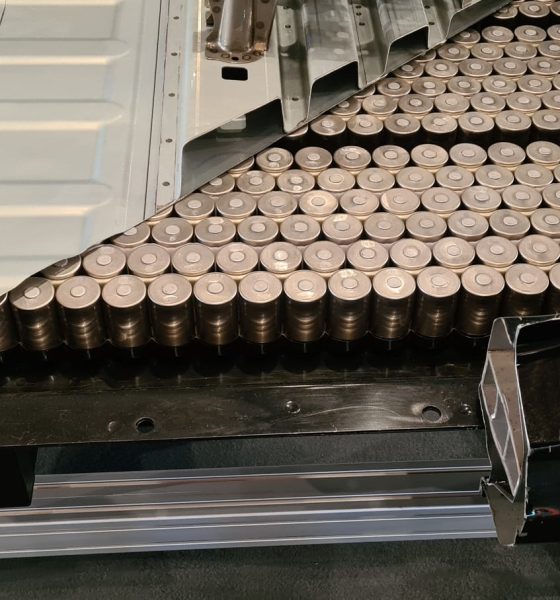Tesla has been pretty open about the idea that its next-generation of vehicles and its 20 million EV target for 2030 would rely on its ability to scale its 4680 battery production. This task, at least according to experts, has proven to be especially challenging.
Unveiled during Battery Day nearly two years ago, 4680 cells are expected to provide Tesla with substantial manufacturing cost reductions and efficiencies. According to statements from several experts in the field, the use of larger cells and a dry-coat electrode process could enable Tesla to halve the cost of a Model Y battery.
Twelve experts who are reportedly close to Tesla, or at least familiar with the company’s new battery technology, shared their insights with Reuters. Among the 12 experts, nine reportedly have close ties to Tesla, while three have examined the company’s previous battery technology thoroughly through an extensive teardown.
According to the publication’s sources, Tesla is only halfway towards its goal of successfully rolling out its 4680 cells. While the EV maker already sees benefits from the use of larger cells, Tesla is still reportedly seeing challenges with scaling its dry-coat electrode process.
This, according to the experts, was because Tesla’s dry-coat electrode process is so new and unproven that the company is still having trouble scaling its operations to the point where savings become substantial. Still, the publication’s sources have stated that Tesla would probably still be able to fully implement its 4680 cells’ dry coat electrode process next year.
2019 Nobel laureate and lithium-ion battery pioneer Stan Whittingham believes that Tesla would ultimately solve the challenges associated with its 4680 battery production ramp, though he also noted that Elon Musk might have been too optimistic with his target timeframe for the next-generation batteries’ rollout. “I think he will solve it, but it won’t be as quick as he likes. It’s going to take some time to really test it,” Whittingham said.
Reuters‘ sources noted that if all the potential efficiencies from the use of 4680 batteries are realized, the manufacturing cost for the Model Y’s 4680 structural battery could fall to just about $5,000-$5,500 — roughly half the cost of a 2170 pack. So far, Tesla is reportedly seeing about $2,000 to $3,000 worth of cost savings, mainly due to its use of bigger cells.
With Tesla’s 2170 battery packs, the company reportedly uses about 4,400 cells for the Model Y. The 2170 packs also require 17,600 points that need to be welded — about four welds per cell — to create a battery that can be integrated into the all-electric crossover. This is reduced significantly with the use of 4680 cells. The experts noted that Tesla only needs 830 cells for its Model Y 4680 structural pack, and since there are only two weld points for each cell, the total weld points per vehicle drops to just 1,660 points.
But while Tesla has made tons of headway with its 4680 batteries, and while the company already sees savings due to its use of larger cells, the EV maker still needs to master and scale its dry electrode process. Once that’s done, Tesla could effectively attain the holy grail of its next-generation batteries. “Bulking up the battery cell helped a lot in boosting efficiency, but pushing for 50% cost savings for the cell as a whole is another matter. That will depend on whether Tesla can deploy the dry-coating process successfully in a factory,” one of Reuters‘ sources said.
Don’t hesitate to contact us with news tips. Just send a message to simon@teslarati.com to give us a heads up.

Elon Musk
xAI’s Grok approved for Pentagon classified systems: report
Under the agreement, Grok can be deployed in systems handling classified intelligence analysis, weapons development, and battlefield operations.

Elon Musk’s xAI has signed an agreement with the United States Department of Defense (DoD) to allow Grok to be used in classified military systems.
Previously, Anthropic’s Claude had been the only AI system approved for the most sensitive military work, but a dispute over usage safeguards has reportedly prompted the Pentagon to broaden its options, as noted in a report from Axios.
Under the agreement, Grok can be deployed in systems handling classified intelligence analysis, weapons development, and battlefield operations.
The publication reported that xAI agreed to the Pentagon’s requirement that its technology be usable for “all lawful purposes,” a standard Anthropic has reportedly resisted due to alleged ethical restrictions tied to mass surveillance and autonomous weapons use.
Defense Secretary Pete Hegseth is scheduled to meet with Anthropic CEO Dario Amodei in what sources expect to be a tense meeting, with the publication hinting that the Pentagon could designate Anthropic a “supply chain risk” if the company does not lift its safeguards.
Axios stated that replacing Claude fully might be technically challenging even if xAI or other alternative AI systems take its place. That being said, other AI systems are already in use by the DoD.
Grok already operates in the Pentagon’s unclassified systems alongside Google’s Gemini and OpenAI’s ChatGPT. Google is reportedly close to an agreement that will result in Gemini being used for classified use, while OpenAI’s progress toward classified deployment is described as slower but still feasible.
The publication noted that the Pentagon continues talks with several AI companies as it prepares for potential changes in classified AI sourcing.
Elon Musk
Elon Musk denies Starlink’s price cuts are due to Amazon Kuiper
“This has nothing to do with Kuiper, we’re just trying to make Starlink more affordable to a broader audience,” Musk wrote in a post on X.

Elon Musk has pushed back on claims that Starlink’s recent price reductions are tied to Amazon’s Kuiper project.
In a post on X, Musk responded directly to a report suggesting that Starlink was cutting prices and offering free hardware to partners ahead of a planned IPO and increased competition from Kuiper.
“This has nothing to do with Kuiper, we’re just trying to make Starlink more affordable to a broader audience,” Musk wrote in a post on X. “The lower the cost, the more Starlink can be used by people who don’t have much money, especially in the developing world.”
The speculation originated from a post summarizing a report from The Information, which ran with the headline “SpaceX’s Starlink Makes Land Grab as Amazon Threat Looms.” The report stated that SpaceX is aggressively cutting prices and giving free hardware to distribution partners, which was interpreted as a reaction to Amazon’s Kuiper’s upcoming rollout and possible IPO.
In a way, Musk’s comments could be quite accurate considering Starlink’s current scale. The constellation currently has more than 9,700 satellites in operation today, making it by far the largest satellite broadband network in operation. It has also managed to grow its user base to 10 million active customers across more than 150 countries worldwide.
Amazon’s Kuiper, by comparison, has launched approximately 211 satellites to date, as per data from SatelliteMap.Space, some of which were launched by SpaceX’s Falcon 9 rocket. Starlink surpassed that number in early January 2020, during the early buildout of its first-generation network.
Lower pricing also aligns with Starlink’s broader expansion strategy. SpaceX continues to deploy satellites at a rapid pace using Falcon 9, and future launches aboard Starship are expected to significantly accelerate the constellation’s growth. A larger network improves capacity and global coverage, which can support a broader customer base.
In that context, price reductions can be viewed as a way to match expanding supply with growing demand. Musk’s companies have historically used aggressive pricing strategies to drive adoption at scale, particularly when vertical integration allows costs to decline over time.
News
Tesla Giga Berlin makes a statement of solidarity amid IG Metall conflict
The display comes as tensions between Tesla and IG Metall continue to escalate.

Tesla Giga Berlin is sending a strong message of solidarity amid its ongoing legal dispute with German union IG Metall.
In a post on social media platform X, Giga Berlin plant manager André Thierig shared an image of the facility’s lobby covered with a large banner that reads: “Progress. Innovation. Success.” He added that the slogan reflects what the facility has stood for since Day One.
“Our lobby at Giga Berlin covered in a huge banner these days. Progress. Innovation. Success – this is what we stand for since we started production in 2022 and how we will go into our future!” Thierig wrote in his post on X.
The display comes as tensions between Tesla and IG Metall continue to escalate.
The dispute began after Tesla accused a union representative of secretly recording a works council meeting at Giga Berlin. Tesla stated that it filed a criminal complaint after the alleged incident. Police later confirmed they had seized a computer belonging to an IG Metall member as part of their investigation.
“What has happened today at Giga Berlin is truly beyond words! An external union representative from IG Metall attended a works council meeting. For unknown reasons he recorded the internal meeting and was caught in action! We obviously called police and filed a criminal complaint!” Thierig wrote on X at the time.
IG Metall denied the accusation and characterized Tesla’s move as an election tactic ahead of upcoming works council elections. The union subsequently filed a defamation complaint against Thierig. Authorities later confirmed that an investigation had been opened in connection with the matter.
Giga Berlin began production in 2022 and has since become one of Tesla’s key European manufacturing hubs, producing the Model Y, the company’s best-selling vehicle. The facility has expanded capacity over the past years despite environmental protests, labor disputes, and regulatory scrutiny.










